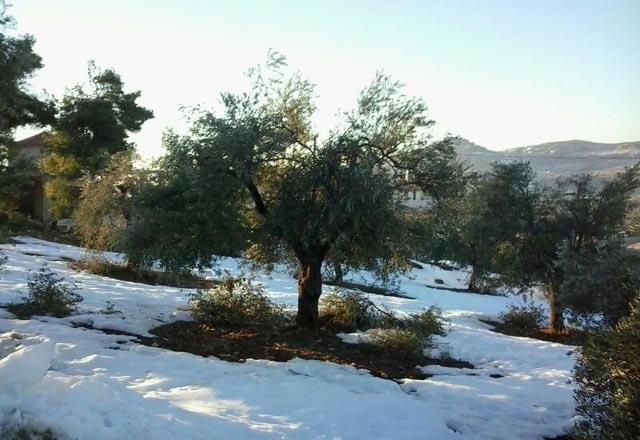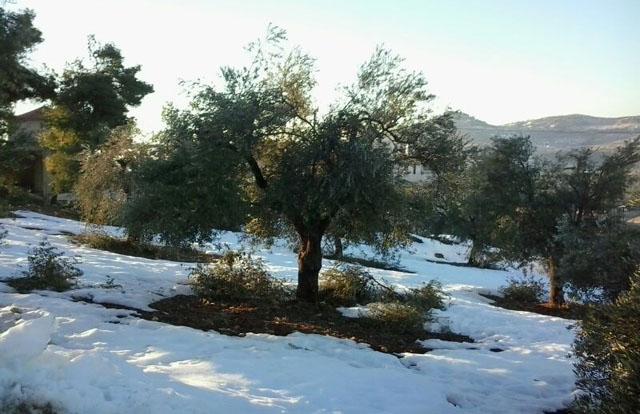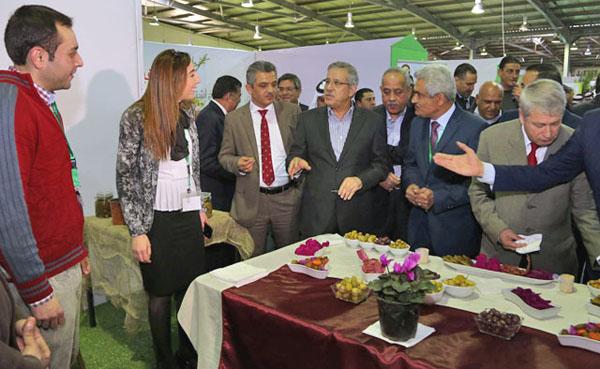AMMAN –– Nearly two-thirds of the olive groves in northern Ajloun Governorate incurred damage during a snowstorm dubbed “Alexa” that hit the Kingdom last month, Agriculture Minister Akef Zu’bi said on Tuesday.
Around 60 per cent of the farms planted with olive trees were severely damaged by the blizzard, the minister said at a press conference, the Jordan News Agency, Petra, reported.
According to the National Centre for Agricultural Research and Extension, there are over 17 million olive trees in the country, nearly half of which are in the northern region.
Jordan is the world’s eighth largest producer of olive oil, exporting its product to several countries including Bahrain, Kuwait, Oman, Qatar, Saudi Arabia and the US.
The average per capita consumption of olive oil in Jordan stands at about 3.43 kilogrammes per year, and the country’s overall annual consumption stands at about 21,773 tonnes, according to official figures.
Meanwhile, Zu’bi said the ministry is mulling exporting agricultural products, fruits and vegetables to the Russian market, which he said equals the Eastern Europe market in terms of size.
“The Russian market would be an important venue for our national exports,” he said, indicating that officials from both sides have agreed to facilitate bilateral trade, Petra reported.
Jordanian exports of fruits and vegetables have seen a series of setbacks in recent years, mainly due to the instability in neighbouring Syria and Iraq.
Syria used to import over 30 per cent of the Kingdom’s produce.
Zu’bi noted that he recently visited the Jordan Customs Department to discuss technical issues related to exporting produce to Russia.
Asked about restrictions imposed on imports of certain agricultural products, he explained that the government takes two conditions into consideration for permitted imports: the products should meet public health standards and national production should not be negatively affected.
Zu’bi told reporters that the government has recently decided to increase the annual financial allocation of the Agriculture Credit Fund from JD10 million to JD60 million in a bid to boost the sector.
Loan limits to farmers will go up from JD10,000 to JD15,000 he said.















